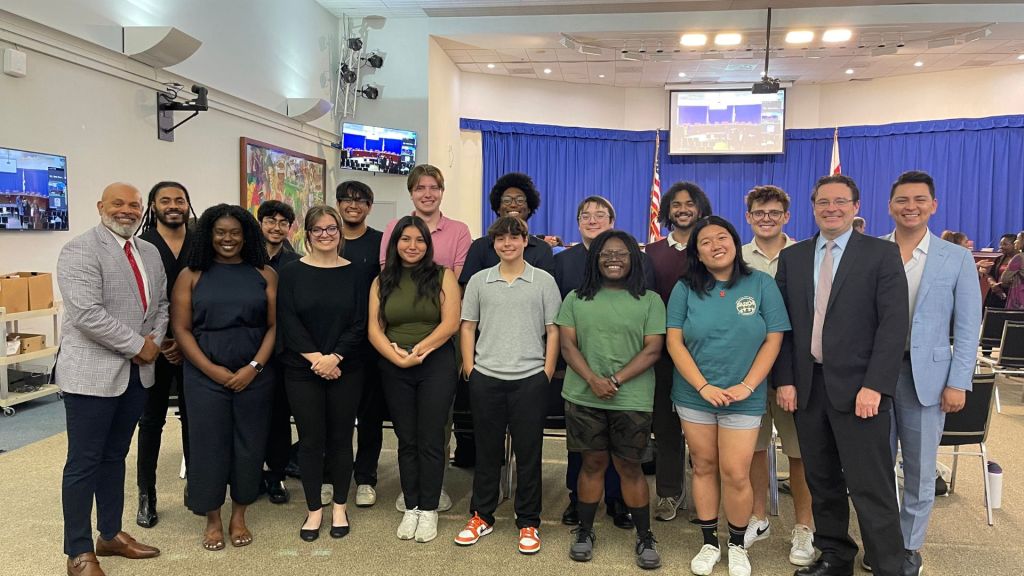By Megan Sayles
AFRO Staff Writer
msayles@afro.com
The D.C. State Board of Education (SBOE) has endorsed a call to cut deference to donor families and halt legacy admissions in the District’s private and public colleges. During a July 14 public meeting, the board voted 8-1 to pass Resolution SR24-16. Testimonies from a number of Georgetown University students were given.

(Photo: Photo courtesy of Darius Wagner)
Many of the student advocates argued that the practice stifles diversity, preventing low-income and Black and Brown students from accessing equitable opportunity in higher education, particularly at prestigious institutions. Rising sophomore Darius Wagner dubbed it “affirmative action for the White and wealthy.”
“At Georgetown alone, there are more students from the top 1 percent than the bottom 60 percent. Students from the top 1 percent are 2.7 times more likely to attend Georgetown than an average income student with the same exact test score,” said Wagner. “There are more legacy students at Georgetown than Black and Hispanic students, respectively. It’s clear that this pattern of fast-tracking is giving advantages to people who already have advantages.”
The first-generation student contended that legacy students begin amassing privileges from birth. They may have access to tutors and better elementary, middle and high school education. They may be able to participate in more extracurricular activities.
He also noted that they benefit from having a parent who already attended college.
“All of these benefits are already provided to affluent students, and then they get another added boost in the admission process. We fundamentally think that’s unfair,” said Wagner. “We know that ending legacy admissions is going to be one step, but an important step, in helping us ensure that there’s more fairness in this process and in increasing and protecting the diversity of our institutions.”
SBOE Representative Eric Goulet, of Ward 3, championed the students’ perspectives. He called D.C. a tale of two cities, where its racial divide between the East and West aligns with a sharp economic opportunity gap.
He cited racial disparities in unemployment, income and child poverty.
“Having a tool that preserves the status quo is something we need to abolish. To be clear, we’re not even fully abolishing it in this resolution,” said Goulet during the meeting. “We are demanding that if universities want to retain the ability to consider legacy preference in their admissions, they’ve got to do better in reaching out and bringing in more students who are eligible for Pell grants. , we can bring in students from lower incomes, diverse backgrounds and bring racial and economic equity to higher education.”
President Eboni-Rose Thompson, of Ward 7, was the only board member who opposed the resolution. She pointed out that a ban on legacy admissions would also inhibit Black and Brown alumni from passing on advantages to their families.
“You have wealthy, White people who have been able to amass not just privilege, but everything else over generations, of generations, of generations, of generations,” said Thompson. “Then, as you start to get people who now could benefit and are Black, Brown and first-generation college students, you say to them you can’t use that to build your family or your community.”
The board’s decision does not mean an automatic end to legacy and donor admission preferences in District colleges. However, it is a signal to the D.C. Council to pass the Fair College Admissions for Students Act, which prohibits the practice.
The bill was introduced in 2022 by New York Congressman Jamaal Bowman and Oregon Senator Jeff Merkley. States, including Virginia, Maryland and Colorado, have also already banned legacy admissions through state legislation.
“We want the D.C. Council to see that while this did start with just a few students concerned about fairness in education, these concerns have been recognized,” said Wagner. “This is an issue that D.C. should prioritize.”
The post D.C. State Board of Education (SBOE) shows support for end of legacy admissions at District institutions appeared first on AFRO American Newspapers.











